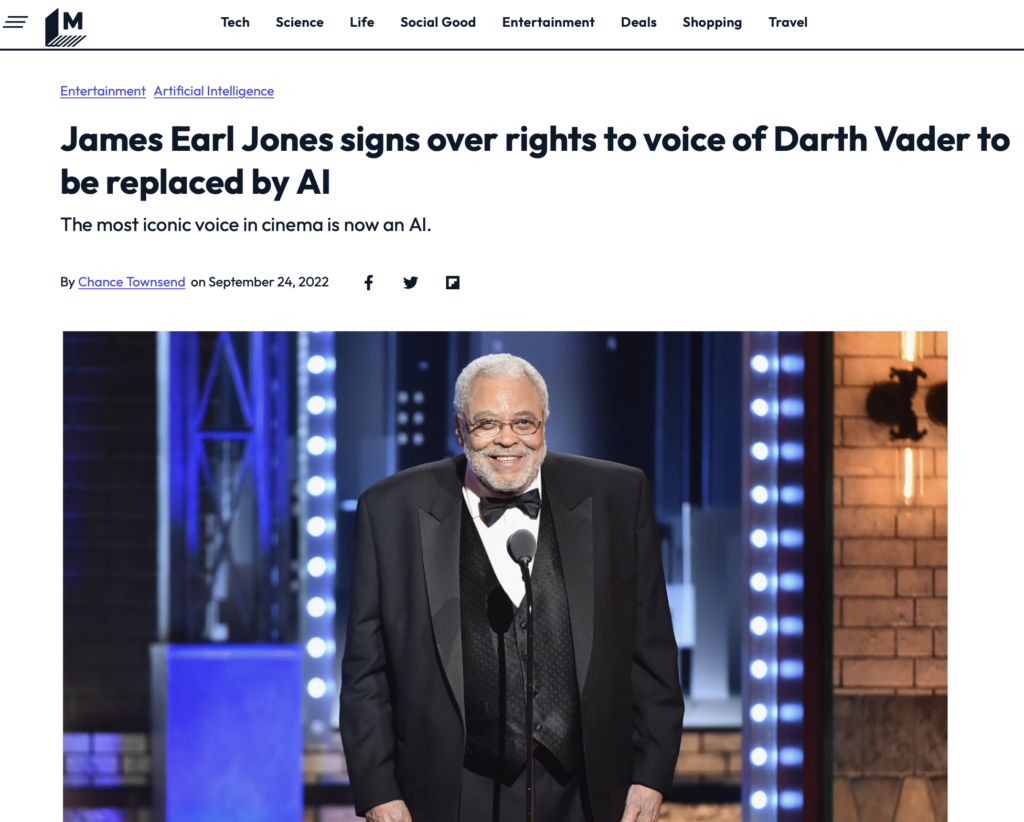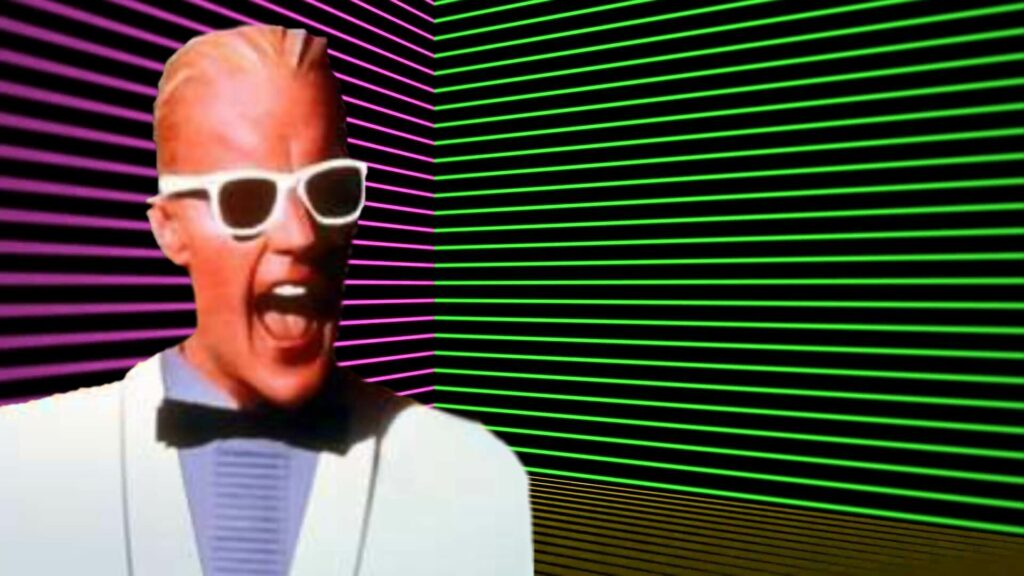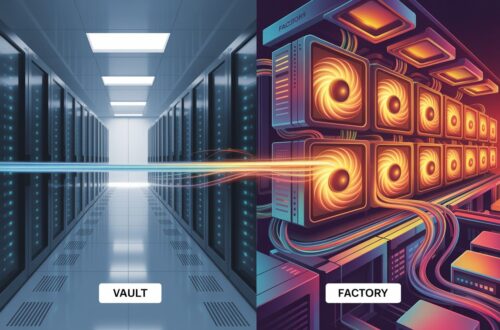In the old days of the web, as web surfers, we sought amusement from inventive websites like “Eric Conveys an Emotion“. A rudimentary interaction, it involved shooting off an email to a bloke named Eric who would respond by making a face corresponding to the emotion described. It was a charming idea that encapsulates the kind of straightforward, slightly absurd creativity that defined the early internet age.
Another such character was Max Headroom, an AI persona from the mid-80s television, who charmed viewers with his wit, charisma, and rubbery digital looks. This seemingly farfetched character – a computer-generated being interacting with real-life humans – has an eerie parallel to where we are heading in the world of entertainment.
Fast forward to the present day, and we’ve taken bold leaps into the digital realm. With the advent of artificial intelligence (AI), we’ve moved far beyond the days of Eric’s amusing emotional demonstrations and Max Headroom’s synthetic charm. AI is now the ultimate “subservient chicken”, bending to our every whim in ways that would have seemed unimaginable in the time of Eric and Max.

Turning to Hollywood, AI is now poised to reshape the film industry. In the future, there’s a potential that we won’t even require actors for film production. Imagine AI systems reading novels, interpreting the stories, visualising the characters, and subsequently producing the entire film from scratch.
Consider the possibilities. In this brave new world, the roles of actors could drastically shift. We might hire actual human performers, “AI twins” of actors, or even AI-generated figures that have no real-world counterparts. Just as CGI and motion capture transformed filmmaking in the late 20th and early 21st centuries, AI may usher in a new epoch where the line between real and artificial performers becomes almost indistinguishable.

These AI performers could be modelled on past or present actors, allowing thespians to perform beyond their physical capabilities or even lifetime. Imagine Marlon Brando in his prime, sharing the screen with Meryl Streep, or a comedy duo featuring Charlie Chaplin and Ryan Reynolds – an absurdist spectacle that defies time and reality.
Why stop there? There could be different versions of the same film, personalised for individual viewers. You prefer comedies? The AI could inject a touch of humour into the script. Easily distracted? The plot can be condensed into a riveting tale to suit your short attention span. Often interrupted by phone calls? The film can pause or shift focus during your distractions. This approach is akin to the Choose Your Own Adventure books of the 1980s and 90s, but with a hyper-personalised twist.
This personalisation could extend to facial preferences, too. Remember when Scarlett Johansson was every film producer’s favourite go-to actor? In the future, we could all have our preferred actor featuring in every movie we watch, irrespective of the original casting. As fanciful as this sounds, the rapid advancement in AI technologies such as deepfake and voice synthesis has already made this a near possibility.

This notion of AI-driven film production isn’t without precedent. The use of AI in the arts has historical roots. In the music industry, for instance, AI has been used to compose music in the style of long-deceased composers, generating new pieces of music that eerily echo the masters’ touch.
Indeed, the use of AI in art and culture is far from a novelty. It’s already becoming a staple. We see AI being increasingly deployed in tasks such as script writing, where machine learning algorithms pore over hundreds of scripts to determine what makes a blockbuster. Even in marketing, AI predicts what films will be a hit, based on factors such as genre, actors, and release dates.
Critics argue that the essence of films is human emotion and connection. The glint in the actor’s eyes, the quiver in the voice, the raw energy and emotion that permeate the silver screen – these are things an AI may never recreate. But let’s not forget, technology has always been a powerful disruptor. Silent movies were once decried as the death of theatre, and television was seen as the end of cinema. Yet, they have only enriched our modes of storytelling. As I often say, most criticisms of AI can be rebutted with the suffix: “…yet”.

Today, AI is on a similar trajectory, nudging us to reimagine filmmaking. While it’s hard to predict whether AI could fully take over film production, it’s undeniable that AI will play a significant role in the evolution of the film industry. The key lies in striking a balance, leveraging AI’s potential without compromising the human touch that makes films resonate with us.
The dawn of AI-driven entertainment is upon us, a reality as amusingly bizarre as a website dedicated to a chap named Eric pulling faces at your command. But it’s here, and it’s real, and it’s time we reckon with its impact. For the new era of entertainment may not come with a red carpet, but with lines of code and personalised algorithms. And who knows? Maybe we’ll even grow to love it.



